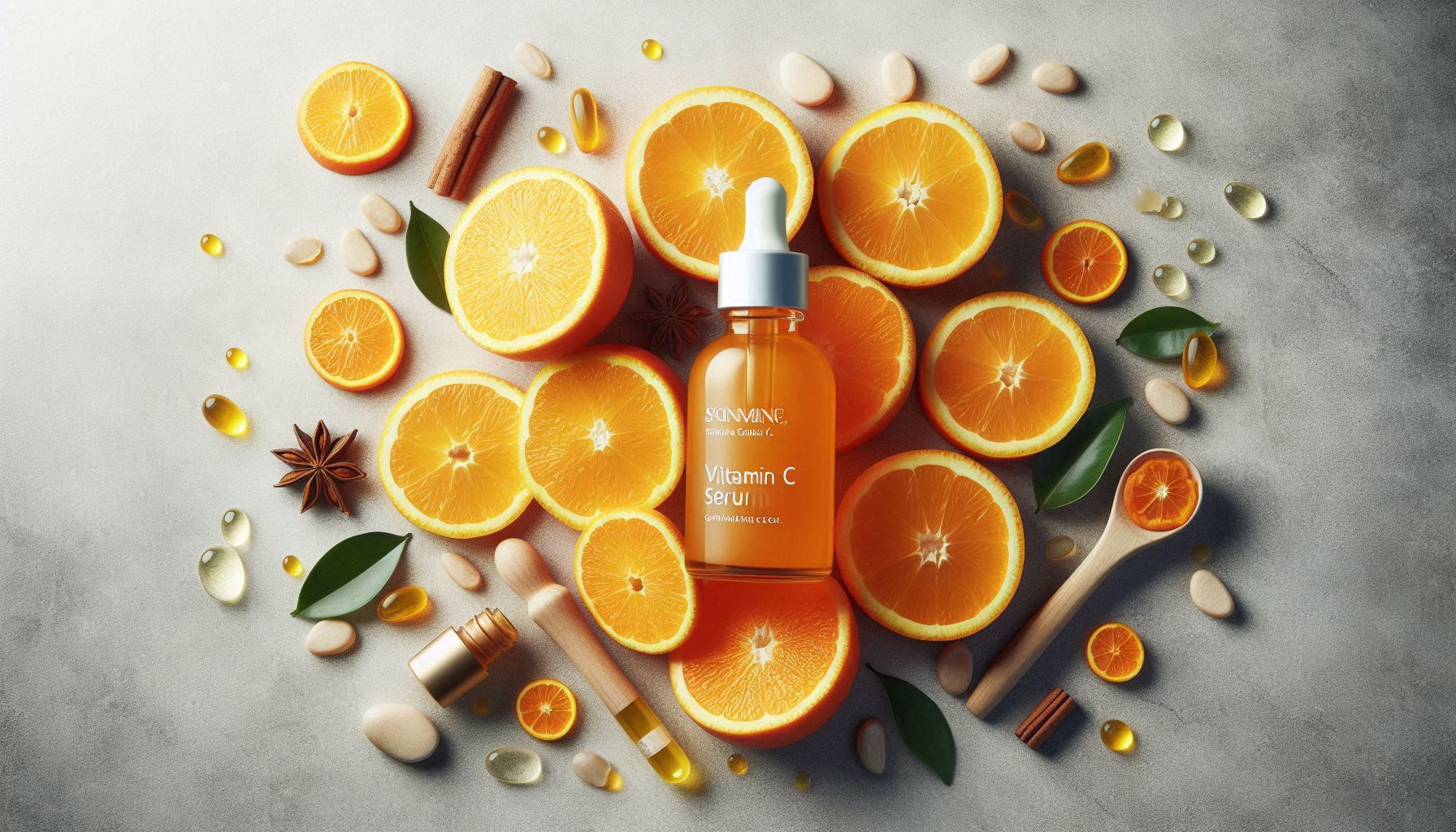
Why do we use Vitamin C?
In the vast world of skincare, few ingredients achieve the universal acclaim of Vitamin C. It is a true gold-standard active, recommended by dermatologists and loved by users for its proven ability to transform the skin’s health and appearance. As a cornerstone of our ingredient philosophy, we believe a potent, stable form of Vitamin C is essential for any effective anti-aging routine.
What is Vitamin C in Skincare?
Vitamin C is a powerful antioxidant that is naturally present in our skin. It plays a vital role in protecting the skin from environmental damage and is essential for producing collagen. While we get Vitamin C from our diet, applying it topically is the most direct way to deliver its benefits to the skin.
In skincare products, you’ll see Vitamin C in various forms. The two most important to know are:
- L-Ascorbic Acid (L-AA): This is the purest, most biologically active form of Vitamin C. It is incredibly effective but also notoriously unstable, meaning it can lose its power quickly when exposed to air, light, and heat.
- Vitamin C Derivatives (like Sodium Ascorbyl Phosphate): These are more stable forms of Vitamin C that are bonded with other molecules. Once absorbed, the skin’s enzymes convert them into active Vitamin C. They are much gentler on the skin and remain potent for longer, making them ideal for sensitive skin types.
The Good: 3 Science-Backed Benefits of Vitamin C
Topical Vitamin C is a multi-functional powerhouse that addresses several key skin concerns at once.
1. It’s a Master Antioxidant
This is Vitamin C’s most famous benefit. It is a master at neutralizing free radicals—unstable molecules from UV rays and pollution that cause oxidative stress. This oxidative stress breaks down collagen and leads to premature aging. By fighting it, Vitamin C helps to protect the skin and prevent the formation of fine lines and wrinkles.
2. It’s Essential for Collagen Production
Your skin needs Vitamin C to produce collagen, the protein that gives skin its firmness and structure. By providing this essential co-factor, topical Vitamin C helps to support the skin’s natural collagen synthesis process, leading to a firmer, plumper, and more youthful appearance.
3. It Brightens and Evens Skin Tone
Vitamin C can inhibit the enzyme (tyrosinase) responsible for producing melanin, the pigment in your skin. This action helps to fade the appearance of dark spots, post-acne marks, and general hyperpigmentation, resulting in a significantly brighter and more even-toned complexion.
The Bad: Are There Any Considerations?
While Vitamin C is overwhelmingly beneficial, its potency comes with a few important considerations.
- Instability and Oxidation: Pure L-Ascorbic Acid is very unstable and oxidizes quickly, turning yellow or brown and losing its effectiveness. This is why stable derivatives are often used and why it’s crucial for any Vitamin C product to be in opaque, air-tight packaging.
- Potential for Irritation: High concentrations of pure L-Ascorbic Acid can be irritating for sensitive skin due to its low pH. Stable, gentler derivatives like Sodium Ascorbyl Phosphate are often a better choice for reactive skin.
- It Works Best as a Team: Vitamin C’s antioxidant power is supercharged when paired with other antioxidants. It has a well-known synergistic relationship with Vitamin E, as they “recharge” each other to provide longer-lasting protection.
The Verdict
Topical Vitamin C is a non-negotiable for anyone serious about anti-aging and skin health. Its proven ability to protect, firm, and brighten makes it one of the most valuable ingredients you can add to your routine. Whether in its pure form or a stable derivative, it is a true A-list ingredient for achieving a radiant, youthful glow.
Primary Article Sources
- Linus Pauling Institute (Oregon State University): Vitamin C and Skin Health – The definitive scientific overview of Vitamin C’s role in collagen synthesis, antioxidant protection, and wound healing.
- National Institutes of Health (PubMed Central): The Roles of Vitamin C in Skin Health – A comprehensive review from the journal Nutrients detailing the mechanisms behind Vitamin C’s benefits for photo-protection, anti-aging, and pigmentation.
Other sources used for this article:
- Harvard Health Publishing: Why is topical vitamin C important for skin health? – An easy-to-read article from Harvard Medical School explaining the benefits of topical Vitamin C.
- Cleveland Clinic: What Can Vitamin C Do for Your Skin – Another article on the benefits of Vitamin C.
Frequently Asked Questions about Vitamin C
L-Ascorbic Acid is the most potent, but it’s unstable and can be irritating. Stable derivatives like Sodium Ascorbyl Phosphate are gentler, remain effective for longer, and are often better for sensitive skin types.
Yes, for the best results, Vitamin C should be used every morning. Daily use provides a reservoir of antioxidants in the skin that helps to protect it from the environmental damage you encounter throughout the day.
While Vitamin C works well with most ingredients like Vitamin E and sunscreen, it’s best to be cautious when layering high-concentration L-Ascorbic Acid with other strong actives like retinoids or AHAs/BHAs in the same routine, as this can increase the potential for irritation. Using them at different times of day (e.g., Vitamin C in the morning, retinoids at night) is a great strategy.
Find Vitamin C in Our Products
(will be updated shortly)
